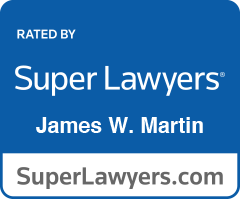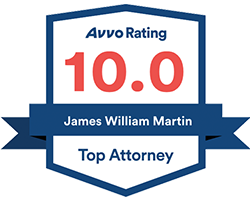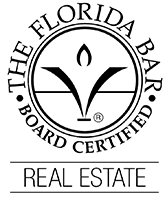Mortgage Foreclosure : The Process In Florida
[Note: This blog was written in 2009 at the beginning of the mortgage foreclosure crisis and Great Recession. Some aspects of the mortgage foreclosure process have changed since then.]
This blog entry summarizes the process for mortgage foreclosures in Florida. It does not give tips or tricks for plaintiffs or defendants. I represent both lenders and borrowers, and I don’t want to help the other side in a pending or future case. But I think it is always beneficial for all parties to know the process, so this article is intended as a general statement of the process to foreclose a mortgage in Florida.
Underlying Obligation. Every mortgage has an underlying obligation. It is usually a promissory note, but it can be a loan agreement, a guaranty, a property settlement agreement, a contract or any other legal obligation. If the legal obligation is a promissory note, the one who owes the money is called the “maker” and the one to whom the money is owed is called the “payee”. If the note is assigned, then the one who holds the note is the “holder”. The underlying obligation is important when foreclosing a mortgage because without an underlying obligation, there can be no mortgage.
Mortgage. The mortgage is a writing by which the underlying obligation’s performance or payment is secured by a lien on real estate. Technically, a mortgage is given by the property owner to the lender, but sometimes we hear about a bank giving a customer a mortgage. What is really meant is that the bank is giving the customer a mortgage loan. It’s the customer who gives the bank the mortgage, in order to secure payment of the promissory note that evidences the loan.
Real Estate. The real estate can be a house, a home, a homestead, a condominium (condo), an office, a store, a building, a lot, vacant land, a farm, a ranch, etc. Real estate and real property mean the same thing. Real property is land, dirt, ground, earth and what is attached to it: buildings, trees, fences, flag poles, swimming pools, streets, driveways, etc.
Mortgagor and Mortgagee; Borrower and Lender; Defendant and Plaintiff. The owner of the real estate is called the “mortgagor”, and the one to whom the mortgage is given is called the “mortgagee”. So, the borrower is the mortgagor, and the lender is the mortgagee. When the mortgage is foreclosed, the lender is the plaintiff, and the landowner is the defendant.
Default. To foreclose a mortgage in Florida, there must be a default of the underlying obligation or a term in the mortgage. Notes and mortgages usually define what constitutes a default. They usually state that failing to pay a monthly payment on a promissory note when it is due constitutes a default. They usually state that such a default gives the lender the right to declare the entire principal balance of the note to be due and payable right then. They sometimes include a grace period to bring the note current and avoid acceleration of the entire balance.
Demand Letter. The lender usually sends the borrower a demand letter before foreclosing on the mortgage. It usually states a date by which payment must be made to avoid foreclosure. A demand letter might not be required, but it is often sent to avoid litigation and to resolve the dispute out of court. It is always best to engage a lawyer to send a demand letter and to reply to a demand letter. Let me go back and say this, too: it is always best for the lender to have a lawyer prepare the note and mortgage before making the loan, and it is always best for a borrower to have a lawyer review the note and mortgage before signing it.
Complaint; Lawsuit; Pleadings. How do you foreclose a mortgage in Florida? By filing a complaint with the clerk of court. A complaint is the writing that starts a lawsuit. It requires a hefty filing fee. We Florida lawyers generally refer to any papers we file with the court as “pleadings”, but that’s wrong because we file motions all the time and they are not technically pleadings. That’s a reason it’s always best to engage a lawyer to represent a plaintiff or defendant in court: the wording on the paper counts. We are bound by what we say. We may waive rights if we do not say the right thing or do not say it in time.
Summons; Service. When the complaint to foreclose the mortgage is filed, the clerk issues a summons. The summons commands all the sheriffs in Florida to serve the complaint on the defendant (borrower). It also commands the defendant to respond to the complaint within 20 days. The summons and complaint are served on the defendant by a sheriff or a process server. Instead of serving the defendant, they can also serve someone else in the defendant’s place of abode. The rules are technical, so once again it is best to consult a lawyer. Especially if your 17 year old son says someone came by and dropped off papers but he doesn’t remember where he put them. You only have 20 days to find them, hire a lawyer, and file with the court.
Answer. Generally the defendant must file an answer within 20 days after service of the summons. Sometimes a motion can be filed that tolls the time to file the answer. Sometimes a counterclaim can be filed, as well. These are technical writings that only a lawyer should prepare. Failure to raise defenses and claims at this time may result in loss of the defenses and claims.
Default. If an answer or proper motion is not filed within the required period (usually 20 days), then a default may be entered that will result in an immediate judgment being entered in favor of the lender and against the borrower without holding a hearing or trial. This is bad, if you are the borrower, but good if you are the lender. It can be very difficult to set aside a default judgment so this is something for all borrowers to avoid.
Discovery. Parties in lawsuits are entitled to seek discovery from other parties by asking them questions in front of a court reporter (oral depositions), sending them written questions (interrogatories), asking for copies of documents (document production), etc. This can be quite time consuming and expensive, but it is standard practice in most lawsuits to engage in discovery in order to avoid surprises at trial.
Summary Judgment. The lender will often ask the court to enter a foreclosure judgment without holding a trial. A summary judgment is often granted in foreclosure cases when there is no material issue of fact or law. Again, this is very technical, is the domain of lawyers, and varies from case to case.
Mediation. Courts generally require mediation before trial. Sometimes cases settle as a result of mediation, avoding the need for a trial.
Trial. Unless a default judgment or summary judgment was entered or the case settles, the case will eventually go to trial. At the trial, each side will present evidence needed to prove its side of the case, after which a decision will be made as to whether the plaintiff/lender wins or the defendant/borrower wins.
Judgment; Foreclosure Sale. The court’s decision is set forth in a writing called a “judgment”. In foreclosure cases, the judgment directs the clerk of court to sell the real estate on a specific date, time and place. The sale proceeds are applied to what the defendant owes the plaintiff. Generally, the bidding is open to anyone who wants to buy the property. The plaintiff is allowed to bid on the real estate at the sale and, instead of paying cash, may apply up to the judgment amount toward the bid amount.
Special Rules. There are so many foreclosures in Florida now that some courts have adopted special rules for mortgage foreclosures. For example, in Pinellas County, institutional lenders must follow specific rules and file specific forms to foreclose mortgages. The goal is to anticipate and avoid common legal and evidentiary problems before they reach the judge on the day of trial, thus saving precious courtroom time for cases that truly have issues of fact to be tried by the court.
Conclusion. Of course, this is just the tip of the Florida mortgage foreclosure iceberg. Florida lawyers are creative, so we try to come up with ways to help the lender enforce its remedies for a mortgage default and ways to help the borrower defend against mortgage foreclosure. Today there is much economic uncertainty for both lenders and borrowers. Courts will be the place of final resolution for most of the mortgage crisis in Florida and America. Florida lawyers will be there to foreclose mortgage in Florida for the lender and defend the foreclosure for the property owner.
Mortgage foreclosure in Florida is a court process that follows strict rules of procedure.






